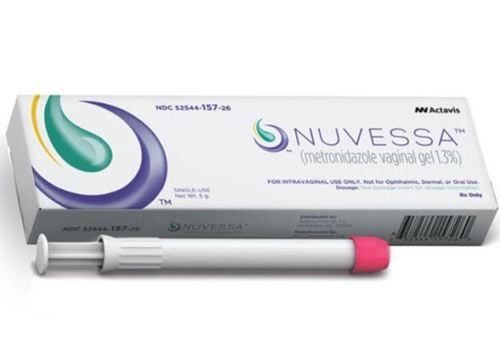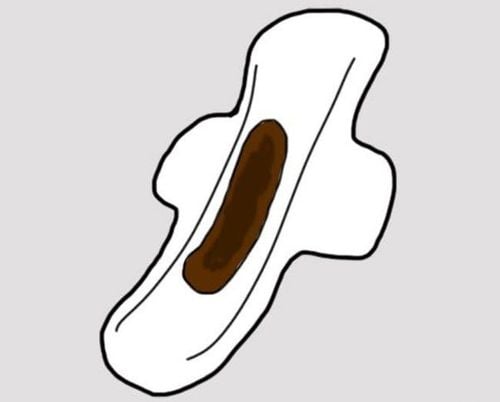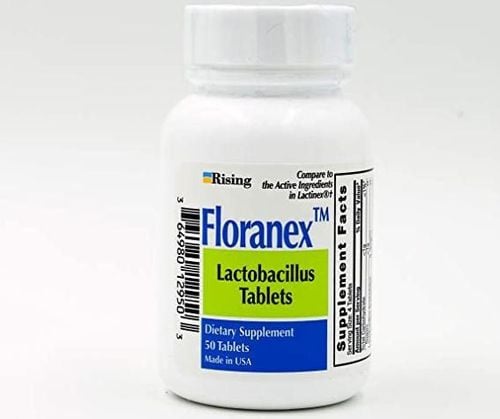This is an automatically translated article.
Unusual vaginal odor occasionally occurs. Even if you're taking good care of your body and intimate area, you may still feel strange odors. What is not normal is a persistent or strong odor. So how to get rid of vaginal odor?1. Is vaginal odor a natural phenomenon?
Unusual vaginal odor occasionally occurs. Even if you're taking good care of your body and intimate area, you may still feel strange odors. What is not normal is a persistent or strong odor.The first question you should ask yourself if you notice an unusual vaginal odor is: What is normal? The vagina has a natural odor and every woman's smell is different.
The signature scent of a healthy vagina can best be described as “musks” or “fragrance”. The menstrual cycle can cause a slightly "metallic" odor for a few days. Intercourse can change the smell temporarily.
Your vagina cleans itself naturally. If you leave your vagina to its own devices, it can naturally maintain a healthy pH and keep healthy bacteria out.
But if you notice a noticeable difference in your smell, you may be experiencing signs of an underlying problem.
Strong odors, itching and irritation, and unusual discharge are all signs that you may have something other than an unusual vaginal odor.
2. 7 ways to get rid of vaginal odor
Sometimes, you may need a little help getting rid of a bad smell. The following techniques can help you get rid of abnormal vaginal odor naturally:2.1. Good hygiene Cleaning the genitals with a gentle towel will help wash away dead skin, sweat and dirt. You can use mild soap to rub the outside.
Inside the labia, this area is much more sensitive, and soap often causes burns and irritation. Letting water run over the area regularly is enough to keep the labia around the vagina clean. The vagina itself does not need to be cleaned.
Avoid loofahs as they can cause small tears, exposing the genital area that can become infected.
Do not use scented soaps or shower gels. Scents and chemicals can upset the natural pH of the vagina. Soap can be gentler than body wash, but warm water is enough.

Mùi âm đạo có thể được loại bỏ nếu bạn vệ sinh vùng kín cẩn thận
2.3. Change your underwear If you normally wear satin, silk or polyester underwear, switch to 100% cotton.
Cotton is breathable and does a great job wicking sweat and fluids from your body. Excess moisture can upset your natural bacteria levels and lead to infections.
2.4. Consider a pH product Over-the-counter (OTC) products can be helpful to restore the natural pH of the vagina.
If you try once and the odor persists or gets worse, make an appointment with your doctor. You may need to use a different product, or you may need to see your doctor for a treatable infection.
2.5. Essential oils Essential oil therapy has very little medical research to support it. Certain essential oils have antibacterial and antifungal properties that can help reduce and eliminate bacteria.
But never apply essential oils directly to the skin without first diluting in a carrier oil. Even when diluted, essential oils can still irritate the vaginal area.
You can find over-the-counter creams that contain essential oils, but only use them if they are recommended for use in the genital area.
2.6. Soak in Vinegar Regularly taking hot showers and baths can upset your natural pH, but one type of bath can help. Pour a cup or two of apple cider vinegar into a warm bath and soak for 20 minutes. Vinegar can naturally reduce bacteria.
2.7. Prescription treatment Prescription treatment can help eliminate the underlying causes that contribute to the odor. If your home or OTC treatments aren't successful, it may be time to talk to your doctor about treatment options.
3. When to see a doctor
If this odor is accompanied by unusual symptoms, you should skip home treatment and consult a doctor.For example, if your vaginal odor is stronger than usual and seems to be getting worse, you may need an appointment.
Likewise, the “fishy” smell is your reason to book an appointment. Bad-smelling discharge is a symptom of a vaginal infection.
These odors could be a sign of a problem that is not improving. You may need a prescription from your doctor or a prescription treatment.
You do not want to delay treatment. An untreated infection can affect your ability to get pregnant in the future.
Some vaginal discharge is normal. If you notice an increase in discharge or the discharge is no longer white or clear, you may have an infection.
Itching is normal at times, but if you develop a regular itch or a painful itch, you may be experiencing signs of a larger problem.

Nếu mùi âm đạo ngày càng nghiêm trọng, bạn nên liên hệ với bác sĩ
Once you get rid of abnormal vaginal odor, keep these tips in mind to prevent further problems later:
Consider probiotics. Probiotics, which are beneficial bacteria for you, can help maintain the pH balance of your vagina. Probiotic-rich foods include yogurt, kombucha, and unpasteurized sauerkraut. Maintain a healthy diet. Try to eat a balanced diet with lots of fruits, vegetables, whole grains, and lean protein. A balanced diet makes for a healthy body and that includes your vagina. Keep enough water. Drinking lots of water is not only good for your skin. It may also help with the overall health of the vagina by encouraging healthy perspiration and fluid secretion. Avoid douches and scrubs. You might think they will help get rid of bad bacteria, but they also get rid of good bacteria. Let your body figure out the bacteria ratio and ignore these unnatural hair washes. Wash the genital area before and after intercourse. Sex introduces bacteria, as well as foreign substances such as lubricants and spermicides from condoms. Wash before and after sex to help maintain natural bacteria levels. Cut off tight clothing. Clothes that are too tight make the vagina and groin area not airy. Getting plenty of oxygen is important for good vaginal health. Wear cotton underwear. Cotton underwear helps to remove excess moisture from perspiration or discharge. Synthetic fabrics are not good at this. Vaginal odor can be a warning sign of gynecological infection or many other dangerous gynecological diseases, if not treated early and thoroughly, it will lead to infertility, infertility, even cervical cancer. . In particular, cervical cancer is on the rise, rejuvenation, the disease is often detected at a late stage because patients are subjective to common signs such as smelly discharge, leading to difficulties in treatment. towel. Therefore, if you see the symptoms mentioned above in the private area, you should immediately join the comprehensive gynecological examination and screening program at Vinmec. The program is designed for early detection of inflammatory diseases so that treatment is easier, less expensive and early detection of gynecological cancer (cervical cancer). Benefits of the program:
Customers will have gynecological examination with specialized, experienced, good specialists from the country and the world. Testing for syphilis, gonorrhea, taking samples for cervical cytology - vaginal screening for cervical cancer. Transvaginal ultrasound of the uterus and ovaries. Private 1:1 clinic, discreet. Equipment and tools are disinfected after each examination. Modern equipment, imported from the US, Singapore, Korea, Japan,... gives accurate results. After the results are available, the patient is analyzed by a specialist doctor and advised on the optimal treatment direction. Make an appointment with the leading gynecologists in Vinmec for detailed advice.
Please dial HOTLINE for more information or register for an appointment HERE. Download MyVinmec app to make appointments faster and to manage your bookings easily.
Reference source: healthline.com












